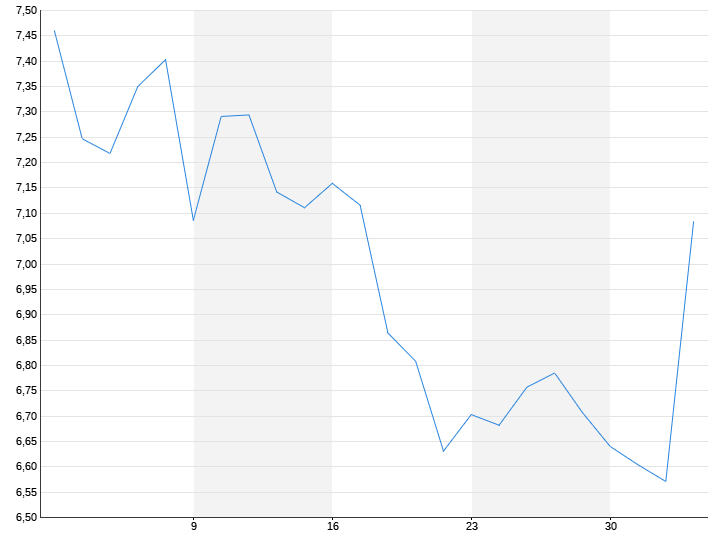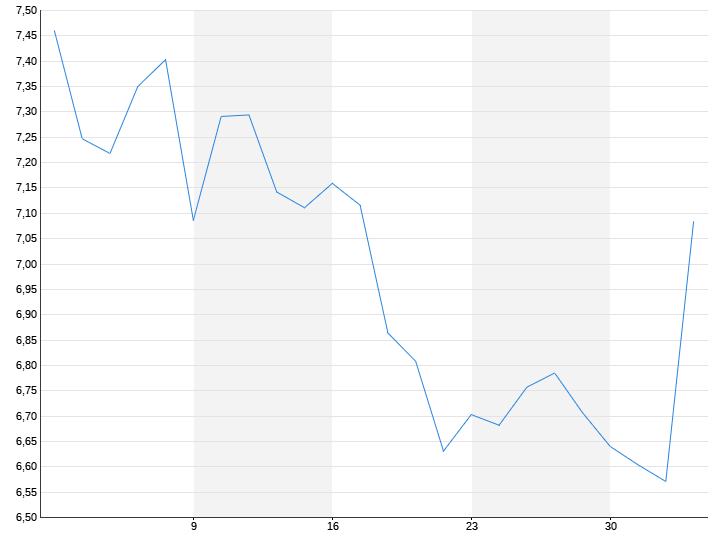Demand for tickets remains consistently high
Summer travel brings Lufthansa new record sales
November 2, 2023, 11:14 a.m
Listen to article
This audio version was artificially generated. More info | Send feedback
Customers’ desire to travel brings airlines high profits. At Lufthansa, the passenger airlines generate billions in sales with an expanded range of services. This increases hopes of a return to the DAX.
A strong travel summer brought Lufthansa record sales and a jump in profits in the third quarter. From July to September, adjusted operating profit rose by 31 percent to 1.5 billion euros, the company announced. The MDAX group achieved the second best result in the company’s history after the summer quarter of 2017, when the Air Berlin bankruptcy filled Lufthansa’s coffers. The net result rose even more sharply by 47 percent to 1.2 billion euros.
The summer as a whole, including the second quarter, was the most profitable ever. Sales reached a record high of 10.3 billion euros. “We have also significantly improved operational stability and reliability despite continued adverse circumstances,” explained CEO Carsten Spohr, as flight operations are still not running smoothly again. Lufthansa wants to live up to its quality standards even more in the future.
With high demand, greater supply and consistently high ticket prices, passenger airlines made almost all of their profits. All airlines in the group – in addition to Lufthansa and Eurowings in Germany, this includes Swiss, Austrian and Brussels Airlines – achieved double-digit margins. They carried 38 million passengers from July to September, five million more than last year. The return improved across the group by two and a half percentage points to 14.3 percent. Lufthansa’s rivals in Europe were even more profitable, also with record profits: Air France-KLM increased its margin to 15.5 percent, the British-Spanish group IAG even earned around 20 percent operationally.
Strong demand for more expensive premium classes
Despite high inflation and a gloomy economic situation, private travelers in particular are not deterred from their desire to travel by increased ticket prices. Average revenues, an indicator of prices, were two percent higher in the third quarter than in the same period last year and were 25 percent above the level of 2019, the year before the corona pandemic, which was disastrous for aviation. “The Lufthansa Group expects strong demand for airline tickets in the coming months,” said the aviation group. Holidaymakers treated themselves to bookings in the more expensive premium classes more often than in the past. The offer is expected to reach 91 percent of the pre-crisis level in the final quarter and 85 percent for the full year as planned.

Lufthansa reiterated its profit target for the full year of more than 2.6 billion euros, although after nine months 2.2 billion euros have already been achieved. The reason for caution is the rise in oil prices, which will increase the fuel bill this year to eight billion euros, about half a billion euros more than estimated in August and 2022. The price driver is currently Israel’s war against the radical Islamic Hamas October 7th attacks.
Lufthansa wants to return to the top stock market league
In addition, the freight division Lufthansa Cargo is struggling with weak demand. With a profit of one million euros, it barely reached the black after a special boom during the corona pandemic brought in 331 million euros last year. The situation should improve in the final quarter as the market should have bottomed out, Lufthansa explained.
Because of the Middle East war, Lufthansa has stopped flights to Tel Aviv and Beirut. “Even if the geopolitical situation remains challenging, our booking outlook makes us positive – not only for a very good consolidated result this year, but also beyond,” explained Spohr. In the coming year, the MDAX group, which is aiming to return to the top stock market league, wants to achieve an eight percent return – a level that was only achieved in 2017/18 in the last decade. The supply should almost return to its previous strength at 95 percent of 2019, while unit costs should fall.
